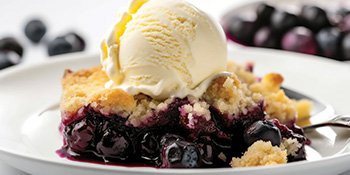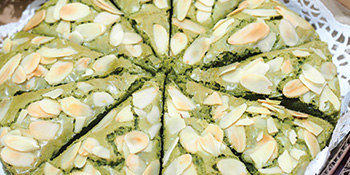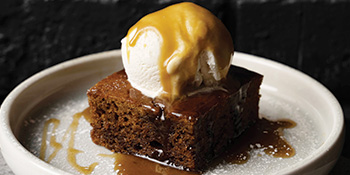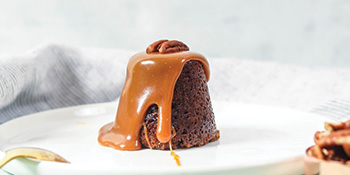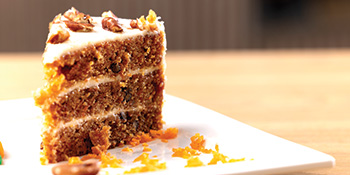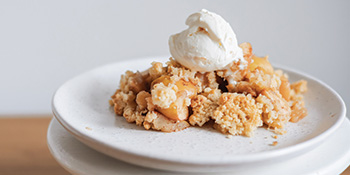Desserts for a cause!
- OSCAR Care Group
- Sep 16, 2024
- 4 min read
Updated: Mar 20
Malnutrition management is always a challenging process, especially in the elderly population. Loss of interest in food, changes in taste buds, along with health conditions may restrict how much older adults can eat. Here is where desserts, particularly dairy-based ones, come in handy to add more nutrients to the diet. Guaranteed food enjoyment!

What is Malnutrition?
Malnutrition is the deficiency of nutrients.
Malnutrition occurs when:
You do not eat enough
You do not eat the right types of food
Or your body cannot absorb enough nutrients from food
Malnutrition can result in unplanned loss of weight and increased risk of illness, pressure injuries, infections, falls, and fractures. It also negatively affects survival.
People at risk of malnutrition
Older adults >65 years of age
People with poor appetite and oral intake
People with Demetia
People with Eating Disorders
People with medical conditions that increase their energy needs, such as cancer, HIV, or kidney failure
People living with overweight, or obesity can also have malnutrition if their diets lack vitamins and minerals.
Malnutrition in Aged Care
Malnutrition is a major public issue. 1 in every 2 older Australians living in aged care or home are either at risk of malnutrition or are malnourished. Malnutrition is often associated with health problems that decrease eating and appetite including dementia, chronic diseases, swallowing problems – all common conditions in older adults.
Read more about Malnutrition in Aged Care here.

High Energy High Protein Diet (HEHP)
Requirements of certain nutrients change with age. Older adults require an increased intake of protein, calcium, and vitamin D. This is often a challenge as they have low appetite limiting the amount of food consumed. Thus, making every bite count is essential to maximise their nutrient intake. This is where HEHP diet can help. A High Energy High Protein diet is designed to deliver additional energy and nutrients.
Read more about High Energy High Protein Diets here
Commonly used in residential aged care homes, this diet supports residents in:
Maintenance of muscle mass, supporting strength, mobility and general health
Maintenance of weight
Minimising the risk of malnutrition
High Energy
To improve health status and improve weight. Examples of high energy foods include Full Cream Dairy Products, Dairy based Desserts, Margarine And Butter, Avocado or Dips, Oil or Mayonnaise, Sugar or Chocolate
High Protein
To build, maintain, and repair cells. Examples of high protein foods include Meat, Chicken, Fish, Eggs, Milk, Dairy Products, Beans, legumes, Nuts, seeds, Tofu and tempeh.
HEHP Desserts
Desserts are often well enjoyed by older adults which make them a great opportunity for more nutrients. They make a great source of energy and protein. HEHP desserts are dairy based, hence their high protein and calcium content. They also have sugar and fats which increases their energy content.
They include:
Crème caramel
Custard
Vanilla or chocolate pudding
Vanilla Slice
Creamed rice
Panna Cotta (see Recipe)
Yoghurt
Mousse
Offering HEHP desserts is among the strategies to improve nutritional status, lower the risk of malnutrition, and minimize weight loss.
Tips to increase protein and energy intake in desserts
Add full cream milk powder when making desserts.
Add custard, ice cream, or yoghurt to all desserts, but in particular to Jelly, cake and fruit as these are not nutritionally adequate.
Cream is not a good choice as a source of protein compared to other dairy products such as yoghurt, ice-cream or custard.
Offer double desserts for residents with poor oral intake of mains.
Offer custard or yoghurt in between meals at morning tea, afternoon tea and supper.
Who can help the malnourished?
Dietitians can support people who are either at risk of malnutrition or are malnourished. They can offer personalised and easy-to-follow dietary advice to help them meet their nutritional needs and improve their health.
With Dietitians across Australia, OSCAR Care Group Dietitians work closely with residents, their family, and care staff to ensure safe, practical, and enjoyable food and fluids options to prevent or treat malnutrition. We also offer nutritional training to your staff to help and Aged Care Menu and recipe development and reviews.
Our Dietitians favourite desserts
We asked our Dietitians, what's their favourite dessert is. We love the variety of our team, but I think date pudding or something chocolately seems to be the overall fav.
Fresh cream vanilla cake with strawberry ice-cream topped with coconut flakes - Ashma, OSCAR Care Group Dietitian in Queensland
Grapes! – Cammy, OSCAR Care Group Dietitian in Victoria
A warm berry crumble, straight out of the oven, with a good scoop of vanilla ice cream on the side. – Emily, OSCAR Care Group Dietitian in NSW
Plain chocolate, or just anything with chocolate on it. - Hannah E, OSCAR Care Group Dietitian in South Australia
Anything warm and chocolately'– Hannah S, OSCAR Care Group Dietitian in Victoria
Sticky date pudding with butterscotch sauce and ice cream'. – Hilda , OSCAR Care Group Dietitian in Victoria
Warm sticky date pudding with vanilla ice-cream- Jamie, OSCAR Care Group Dietitian in Victoria
Warmed up triple chocolate brownies with vanilla bean ice-cream.– Kiarra, OSCAR Care Group Dietitian in Victoria
Pineapple Tarts! - Melanie, OSCAR Care Group Dietitian in NSW
Belgian waffles! - Moe, OSCAR Care Group Dietitian in South Australia
Carrot cake - Natascha, OSCAR Care Group Dietitian in Queensland
Matcha Pizza – Peter, OSCAR Care Group Dietitian in NSW
Chocolate Lava Cake - Sarah, OSCAR Care Group Dietitian, NSW
Apple crumble – Tania, OSCAR Care Group Dietitian in Victoria
Date pudding with caramel sauce – Verlencia, OSCAR Care Group Dietitian in South Australia





